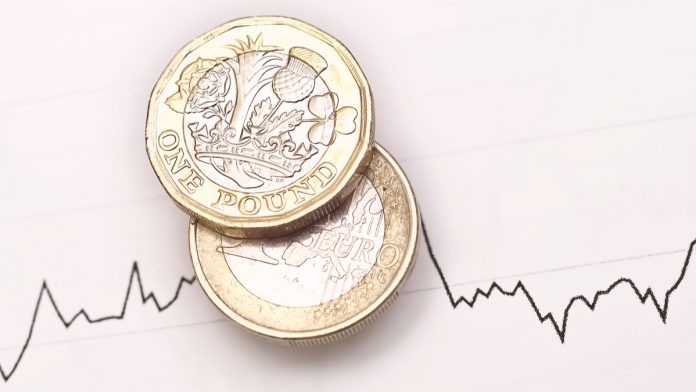The pound fell steeply versus the euro across the previous week. A strong euro and Brexit concerns saw the pound to euro exchange rate dive 2.7% across the week. February saw the pound euro exchange rate snap a6-month push higher.
At 07:00 UTC is GBP/EUR is stabilising at €1.1625 after having dropped to a 4 month nadir of €1.1551 overnight.
Brexit Trade Talks Begin
The pound is focused predominantly on fiscal stimulus expectations ahead of the UK budget and on EU- UK trade negotiations as trader talks kick off today.
Last week the pound fell heavily amid rising fears of a no deal Brexit as Downing Street continued to harden its stance on trade talks due to start today. No deal fears were compounded last week when Prime Minister Boris Johnson said that the U.K. would walk away from trade talks in June if insufficient progress had been made, in order to start planning for an exit on World Trade Organisation rules. Comments from EU chief negotiator Michel Barnier, that he expects talks to be “very difficult” also weighed on demand for the pound.
In addition to Brexit talks kicking off, today also sees the release of February’s UK Markit Manufacturing PMI. Analysts are expecting activity in the manufacturing sector to remain steady at 51.9. The figure 50 separates expansion from contraction. A solid reading could help the pound recoup some of last week’s losses.
EZ PMI Figures To Boost Euro?
The euro had a strong week across the board in the previous week thanks in part to some encouraging macro data releases. A stronger Eurozone business climate report, a solid fall in Germany’s unemployment rate and a better than expected German inflation report, which rose from 1.6% to 1.7%, easing concerns over the health of Europe’s largest economy.
The data served to overshadow the outbreak and rapid spread of coronavirus in Italy and Europe. With coronavirus continuing to spread over the weekend, the euro could start to lose so e of its appeal. The German economy is particularly sensitive to global trade developments. Any signs of a slowdown could heighten the chances of a recession, particularly as a German growth had stagnated before the coronavirus outbreak.
German manufacturing PMI figures will also be in focus today. A further slowdown in the pace of contraction could boost the euro.





